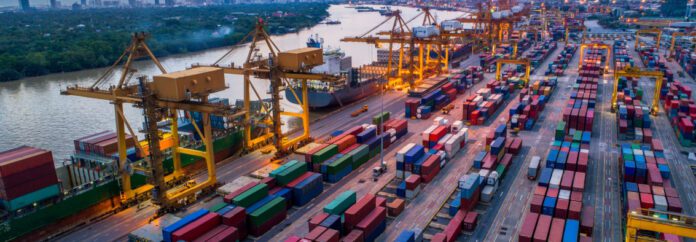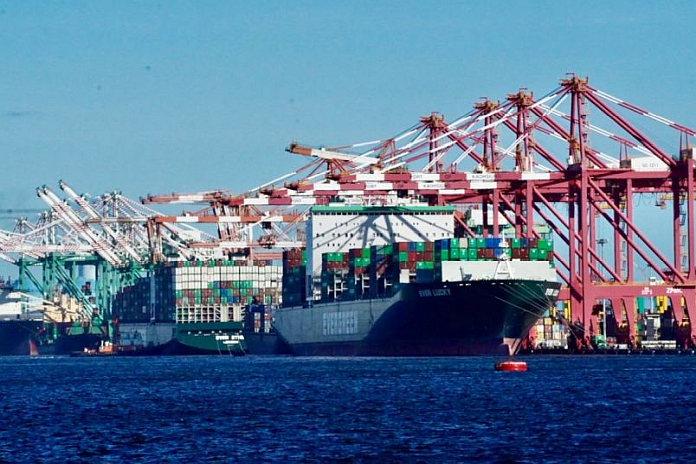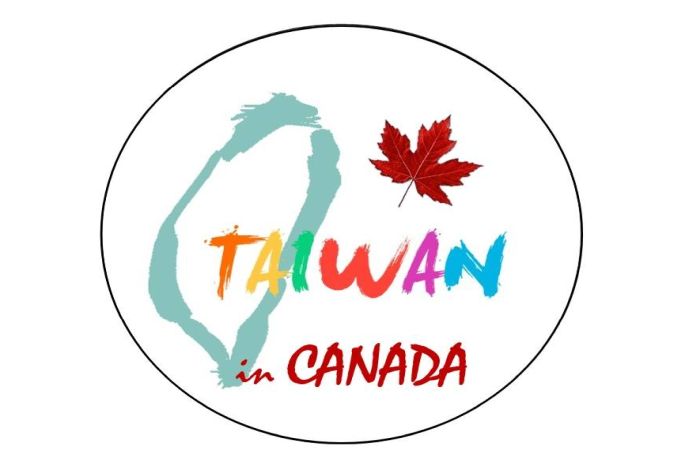 US trading markets ticked higher on the news that former US president Donald Trump was elected for a second term. Investors generally see Trump’s reelection as a net positive for business and the economy, despite the expectation that tariffs will be used more liberally in his second term. During his campaign, Trump floated the idea of an additional 10 to 20 percent tariff on all imports into the United States.
US trading markets ticked higher on the news that former US president Donald Trump was elected for a second term. Investors generally see Trump’s reelection as a net positive for business and the economy, despite the expectation that tariffs will be used more liberally in his second term. During his campaign, Trump floated the idea of an additional 10 to 20 percent tariff on all imports into the United States.
Imports from Taiwan could be targeted in this global tariff scheme. The United States already welcomes imports from Taiwan at a low rate, around 2 percent. An additional 20 percent tariff would increase the average tariff by 1000 percent. Whether US and Taiwan officials can negotiate to avoid these tariffs will depend on a number of factors, but something that has not been helping negotiations is the increasing trade deficit between the United States and Taiwan.
Macro trends in trade, like the trade deficit, will weigh heavily on future US-Taiwan trade negotiations. But as with circumstances during the first Trump administration, there may be other opportunities in the relationship outside of simply trade deficits and tariffs. For example, the US-Taiwan Economic Prosperity Partnership Dialogue was launched during the final year of Trump’s first term and continues to explore opportunities in cyberspace and energy security.
Trump’s second term may not be bad for US-Taiwan relations. Despite the threat of tariffs on imports from Taiwan and other economies, US-Taiwan relations could achieve a net positive when also considering non-trade matters.
The US-Taiwan economic relationship in recent years
Annual trade between the United States and Taiwan continues on an upward trend. Total trade (imports plus exports) of goods and services between the two economies reached a peak of USD $161 billion in 2022. 2023 was slightly lower at USD $152 billion – but the recent boom in artificial intelligence, and exports of servers and graphic processing units (GPUs), may bring that number back up.
The majority of goods and services traded between the United States and Taiwan continue to be in computers and computer parts, semiconductors, telecommunications equipment, industrial machines, transport, travel, and charges for the use of intellectual property.
The challenge when looking at just trade in goods and services, relative to the entire economic relationship between the United States and Taiwan, is that the US trade deficit with Taiwan has also been significantly growing in recent years. In 2022, the trade deficit reached a peak USD $51 billion, nearly double what it was just two years prior. This makes Taiwan the 9th largest trade deficit in goods trading partner of the United States.
The trade deficit the United States has with Taiwan is likely to grow even further in 2024. While the boom in AI (and exports of AI-generating hardware like GPUs and servers) has been a lifeline for Taiwan’s economy, it has also increased Taiwan exports relative to its imports with the United States. Already, exports between January and October of this year from Taiwan to the United States are up nearly 55 percent, while imports from the United States are only up 16 percent. Traditionally, the trade in services surplus the United States has with Taiwan has helped offset the trade in goods deficit, but unfortunately this trend reversed starting in 2021.
While president-elect Trump often talks about his dislike of trade deficits, he has also talked about his desire to bring new investment to the United States, and growing America’s manufacturing capabilities. Since his last administration, Taiwan Semiconductor Manufacturing Company (TSMC,台灣積體電路製造股份有限公司) has established its plant in Arizona and will likely reach production capacity during his new administration.
On the direct investment side of the economic relationship, this too has been trending upward. As of 2023, there was a combined USD $41 billion worth of foreign direct investment stock between the United States and Taiwan. Much of this is in manufacturing.
The future Trump administration will likely continue to highlight the benefit of TSMC and other Taiwanese companies investments in the United States, and likely encourage even more. The concept of the CHIPS and Science Act began under the first Trump Administration. And there could be a second iteration of support for domestic chips manufacturing over the next few years.
Finally, it is also worth noting that Taiwanese investors have purchased USD $717 billion worth of US securities -USD 241 billion of which is in US Treasury securities, making Taiwan the 10th largest holder of US and Treasury securities. Likewise, US investors hold USD 245 billion worth of Taiwan securities, making Taiwan the 10th largest destination for US holdings of foreign securities.

Global trade war a challenge for Taiwan
Trump has proposed two new types of tariffs: a possible 20 percent tariff on all imports into the United States and increasing the tariffs the United States currently has on imports from China to up to 60 percent.
Either of these new tariffs would be a challenge for Taiwanese and American firms operating globally. Even if Taiwan can avoid a trade war directly with the United States, US tariffs on China and other countries like Mexico, Japan, Vietnam could mean increased costs ahead for companies and consumers.
The likelihood of new tariffs on US imports from China is particularly high. Despite the costs of these tariffs, a silver lining has been the impetus to shift manufacturing and other direct investment away from China. China’s worsening political and economic situation, including rising cross-Strait tensions, has also discouraged new investments in China. However, this diversification of supply chains away from China has not all been to the benefit of Taiwan.
Heightened concerns for a possible contingency between Taiwan and China have some international companies concerned about making new investments in Taiwan. Southeast Asia is also a more attractive destination when considering other macroeconomic factors, like the cost of capital and labor.
There is considerable uncertainty regarding the scope of the new tariffs, the process of their implementation, and whether there will be exemptions. Regardless, Taiwan has significant investments in China, the United States, Japan, Vietnam, and Thailand, to name just a few countries. Even if Taiwan manages to get an exemption, other tariffs applied will mean increased costs for companies and consumers.
Non-trade matters
Besides the growing trade surplus Taiwan has with the United States, the Trump administration will likely come to Taipei and ask it to increase its defense spending even further. Even though Taiwan’s defense spending continues to increase annually in terms of both numbers and as a percent of Taiwan’s gross domestic product (GDP), it still may not be seen as enough in the eyes of the Trump administration.
It’s been reported that Taiwan may offer to purchase a significant number of US arms sales in an attempt to build good relations with the Trump administration and to address their concerns about Taiwan’s defense spending. But it is not certain that this strategy will work. And for the ruling Democratic Progressive Party, which lacks a majority in the Legislative Yuan, this puts president Lai in a difficult position.
It also does not help that the government of Taiwan has relatively low debt compared to other central governments. Taiwan’s government has run a budget surplus over the last seven years. Fiscal constraints may be an issue in Taipei politics but it might not carry much weight with the Trump administration.
The issue of defense spending aside, discussions of defense and other security matters still might present opportunities for US-Taiwan dialogue – such as engagement on military training, or non-military security issues such as food and energy security. The Economic Prosperity Partnership Dialogue could continue to be a vehicle for discussion between the two governments. The only question is whether this, and other US-Taiwan dialogues, can survive the mooted future US Department of Government Efficiency.
Is a US-Taiwan free trade agreement possible?
In the first Trump administration, trade and investment talks between the United States and Taiwan were shelved as trade talks with China were prioritized. It is unlikely that a second Trump term will be looking to make a deal with China anytime soon.
Right now, the United States and Taiwan continue to negotiate trade-related matters through the US-Taiwan Initiative on 21st Century Trade Initiative. While the Trade Initiative is technically not a bilateral trade agreement, for all intents and purposes it is being negotiated very similarly to a bilateral trade agreement. For example, Congress now requires oversight and approval over the matters negotiated. The more agreements there are as a part of the Trade Initiative, the closer the United States and Taiwan come closer to what some may consider a comprehensive trade agreement. The only major issue not being negotiated are tariffs, which should not be too controversial given there are currently few tariffs between the United States and Taiwan.
If the Trump administration wanted an easy, but big, win in its first year, all Trump would have to do is tell the Congress his intent to negotiate a deal with Taiwan. And with a majority Republican Congress, this should theoretically be easy enough to pass. Congress is also traditionally supportive of the US-Taiwan relationship at all levels – including trade, security, and defense. The real question then would be, would Trump be willing to look past his distaste for trade deficits to build a stronger economic partnership between the United States and Taiwan.
The main point: US-Taiwan economic relations over the next few years will have their ups and downs. Trade will be a major issue between the United States and its largest trading partners, many of which have large trade deficits with the United States, including Taiwan. Non-trade areas, like investment and security, may offer opportunities to continue good relations.







